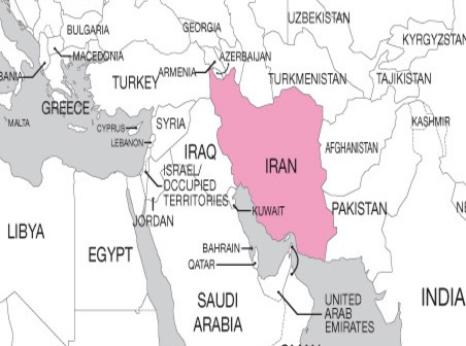Iran: Risk Of Protest-Related Executions Amid Killing Spree

The trials of individuals for capital offences in connection with the nationwide protests have borne no resemblance to meaningful judicial proceedings. Authorities have barred individuals from accessing any lawyers during the investigation phase and have also barred independently appointed lawyers from attending trial hearings and accessing their clients’ casefiles. Authorities have fast-tracked capital cases, with courts relying on torture-tainted “confessions” to issue convictions.
Amnesty International has documented the torture and other ill-treatment of four out of the five individuals under sentence of death to extract forced “confessions”. According to informed sources, during interrogations authorities subjected Reza (Gholamreza) Rasaei to electric shocks, suffocation by putting a plastic bag over his head and severe beatings. In October 2023, a criminal court in Kermanshah province convicted him of “murder” and sentenced him to death, admitting his torture-tainted forced “confessions” as “evidence”. An informed source also told Amnesty International that the authorities repeatedly beat Mohammad Ghobadlou whose conviction for “corruption on earth” and death sentence was upheld by the Supreme Court in December 2022, and also withheld his bipolar medication. In April 2023, Iran’s judiciary announced that a Revolutionary Court in Ahvaz, Khuzestan province, sentenced Mojahed (Abbas) Kourkouri to death for “enmity against God”, “corruption on earth” and “armed rebellion against the state”. His grossly unfair trial was marred by torture-tainted “confessions” obtained while he was subjected to enforced disappearance. According to informed sources, Mansour Dahmardeh was held in detention in circumstances amounting to enforced disappearance and was subjected to sexual violence and beatings, resulting in a broken nose and teeth and hospitalization. According to informed sources, his death sentences were based on his torture-tainted “confessions” of having thrown stones and set fire to a vehicle tyre during the protests.
Of the five individuals under sentence of death, Mansoureh Dahmardeh and Manouchehr Mehman Navaz were sentenced to death for offences such as stone-throwing and arson in violation of international law which prohibits the death penalty for offences that do not involve intentional killing. A Revolutionary Court in Tehran convicted and sentenced Manouchehr Mehman Navaz to death on allegations of setting fire to a state building during protests “with intent to confront the Islamic state.” The court ruled this amounted to “enmity against God” after a grossly unfair trial; and his death sentence was issued just two weeks after his trial started on 29 October 2022.
In addition to the aforementioned individuals, Amnesty International has confirmed the names of at least 12 others – Farzad (Farzin) Tahazadeh, Farhad Tahazadeh, Karwan Shahiparvaneh, Reza Eslamdoost, Shahram Marouf-Moula, Pouria Javaheri, Mohsen Ahmadpour, Rasul Badaghi, Vahid Abbasi, Reza Arabpour, Sadegh Ghasemi and Ismail Mousavi Nazari – who are in detention and are accused of, charged with or indicted on capital offences.
To date, the authorities have arbitrarily executed eight people in connection with the protests after grossly unfair trials marred by torture allegations. On 23 November 2023, authorities executed Milad Zohrevand, ten days after the Supreme Court upheld his conviction and death sentence for “murder” in relation to the death of a Revolutionary Guards agent during the protests. According to human rights activists based outside Iran, after his arrest in connection to a protest in Malayer, Hamadan province, he was denied access to a lawyer. In August 2023, Javad Rouhi, whose convictions and death sentences were overturned by the Supreme Court and sent to the lower court for retrial, died in custody under suspicious circumstances. Iranian authorities refused to conduct full, impartial and independent investigations into the causes and circumstances of his death in custody.
The Iranian authorities have recently embarked on another alarming execution spree, executing at least 115 people in November alone or almost double the number of executions carried out in November 2022. According to figures compiled by Abdorrahman Boroumand Center, on 15 November, the authorities carried out at least 14 executions in a single day. Those arbitrarily executed in November 2023 include: Hamidreza Azari who was a 17-year-old child at the time of execution; two Sunni Kurdish men Ayoub Karimi and Ghassem Abasteh; and Kamran Rezaei, executed in connection to the November 2019 nationwide protests, according to human rights activists based abroad. This spike comes against the backdrop of the Iranian authorities intensifying their use of the death penalty as a tool of political repression to torment and terrorize people in Iran and impose silence and subservience through brute force. In 2023, the authorities have executed several individuals below the age of 18 at the time of the crime; while drug-related executions have almost doubled compared to 2022 and the oppressed Baluchi minority remain disproportionately targeted for executions.